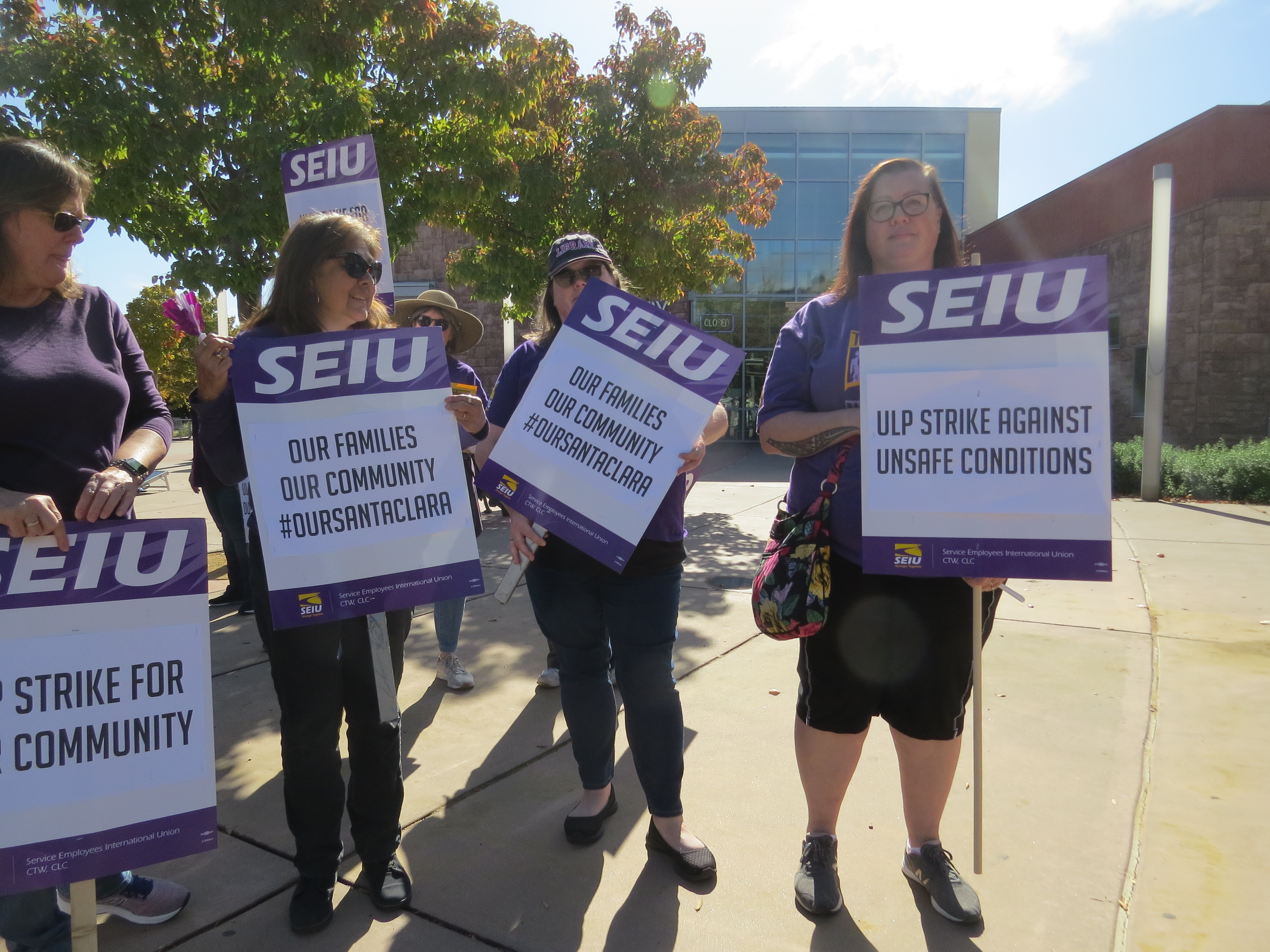Thousands of public workers are struggling to meet the needs of our residents while facing hardship

By Janet Diaz
Santa Clara County is the epicenter of innovation. It is also the epicenter of inequality. The board of supervisors has an opportunity to address inequity in a real way — starting with the front-line county workers who help keep everyone safe and healthy including the most vulnerable — children, seniors, the poor, and minority communities.
Thousands of public workers, 911 dispatchers, social workers, public health nurses, roads and maintenance, hospital workers among many others, are struggling to meet the needs of our residents while facing the hardship of caring for their families. This is a difficult reality many of my county colleagues experience. We are the SEIU (Service Employees International Union)-represented workers of Santa Clara County. As a group we are the lowest paid county employees. Our median wage is less than half that of all the other county employees. In that sense, the county’s own workforce mirrors the inequity we see throughout Silicon Valley.
Up until now, the board of supervisors, acting through its management team, has insisted on bargaining proposals that would make the inequity in this county worse. They’re offering our group a smaller percentage compensation increase than other employees will receive. And the problem is compounded by the fact that a percentage increase means much less for a lower paid worker — even if the percentages are equal. Three percent of $25 per hour — more than thousands of us earn — is only 75 cents per hour or $1,560 annually. A three percent raise for a Principal Labor Relations Representative comes to $4,414 annually. The union has made proposals for equity realignments that would address this inequity for the county’s lowest paid employees in a fiscally responsible way. To date, the county’s management team has rejected these proposals and insisted on an approach that will make inequity in Santa Clara County worse.
The wage inequities that keep frontline workers behind impact women and people of color the most. Santa Clara County should be a leader in creating a more equitable, inclusive society.
According to the California Poverty Measure (developed by the Stanford Center on Poverty and Inequality and the Public Policy Institute of California), a family of four in Santa Clara County earning less than $60,628 annually is “near poor.” For a full-time 40-hour/week worker, this means earning less than $29.15 per hour. By this measure, 4,543 Santa Clara County employees would be classified as “near poor.” This group of workers earn an average of $25.13 per hour. More than 97 percent of these workers are in the group represented by our union, SEIU 521.
And who are these near-poor workers?
Of those for whom we have the information, 84 percent are people of color and 68 percent are women. More than 40 percent of these low-wage workers are Latinos and Latinas — even though the Latino group makes up less than 28 percent of the total county workforce. And 1,087 of them are Latinas — women who deal with a legacy of both sexism and racism. They make up the plurality of low-wage workers — they constitute 28 percent of the low-wage group even though they make-up less than 19 percent of the total county workforce.
When the county offers a package that averages a total of less than 16 percent in annual wage increases to the SEIU group and 21 percent or more to higher paid groups, it only makes the discrepancy worse.
Nevertheless, we can lead!
Investments to recruit sufficient social workers are investments in preventative care for children that we can lead on. Investments to 911 dispatchers are investments to the health and well-being of our communities and trusted first responders. And investments to hospital workers are investments that will protect our ability to address health challenges in our community.
Public workers are just that, workers of the public. We fix our county roads, ensure children are healthy and safe, clean and maintain our county hospitals, and ensure our justice systems function appropriately. We provide care and support to veterans, are the first voice you hear when you call 911, admit you when you’re sick, and we’re there to walk you through the complexities of our county. We are asking for equity because it’s the right thing to do and because it’s necessary if we are going to address the high level of vacancies in so many of these jobs.
Janet Diaz is a patients business service clerk at Valley Medical Center and is a member of the negotiating committee. She serves as the rank-and-file elected SEIU Santa Clara chapter president.






